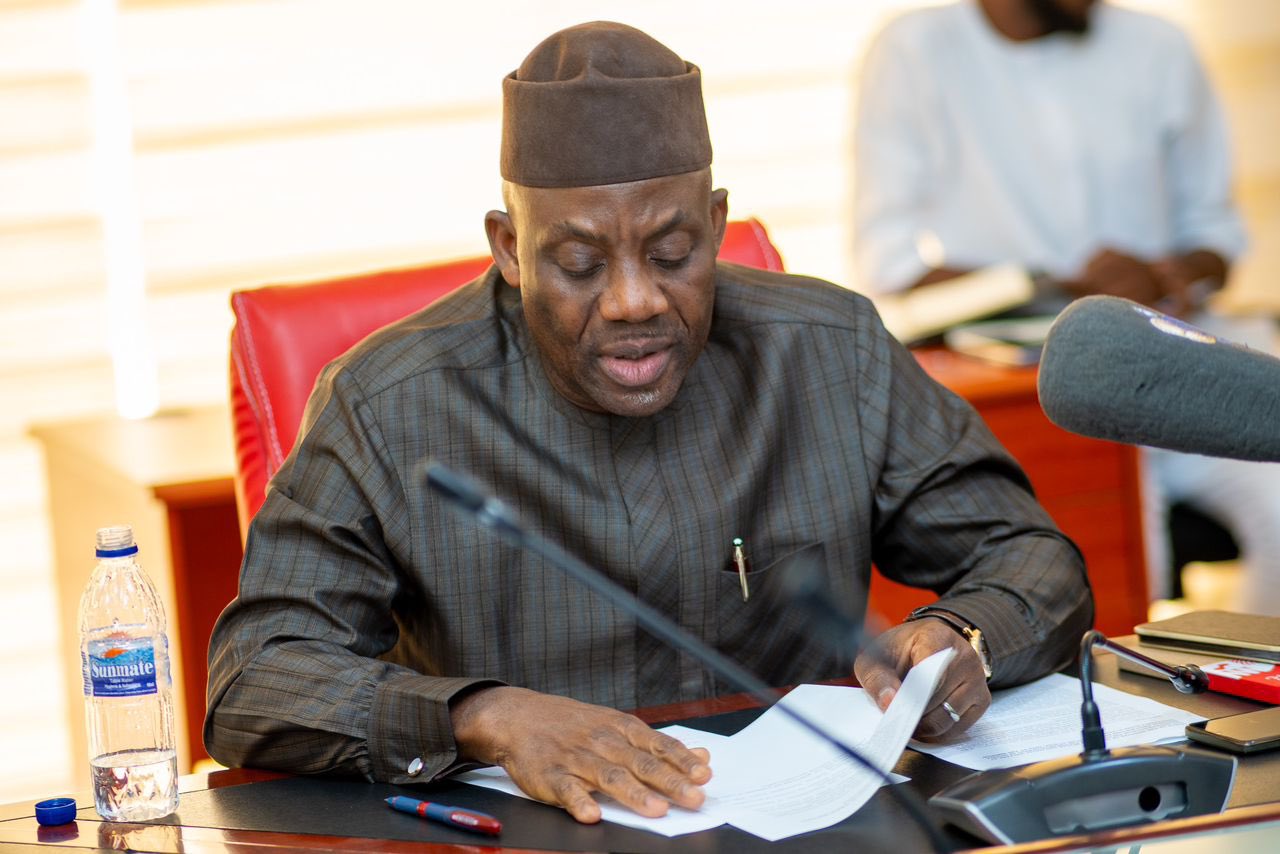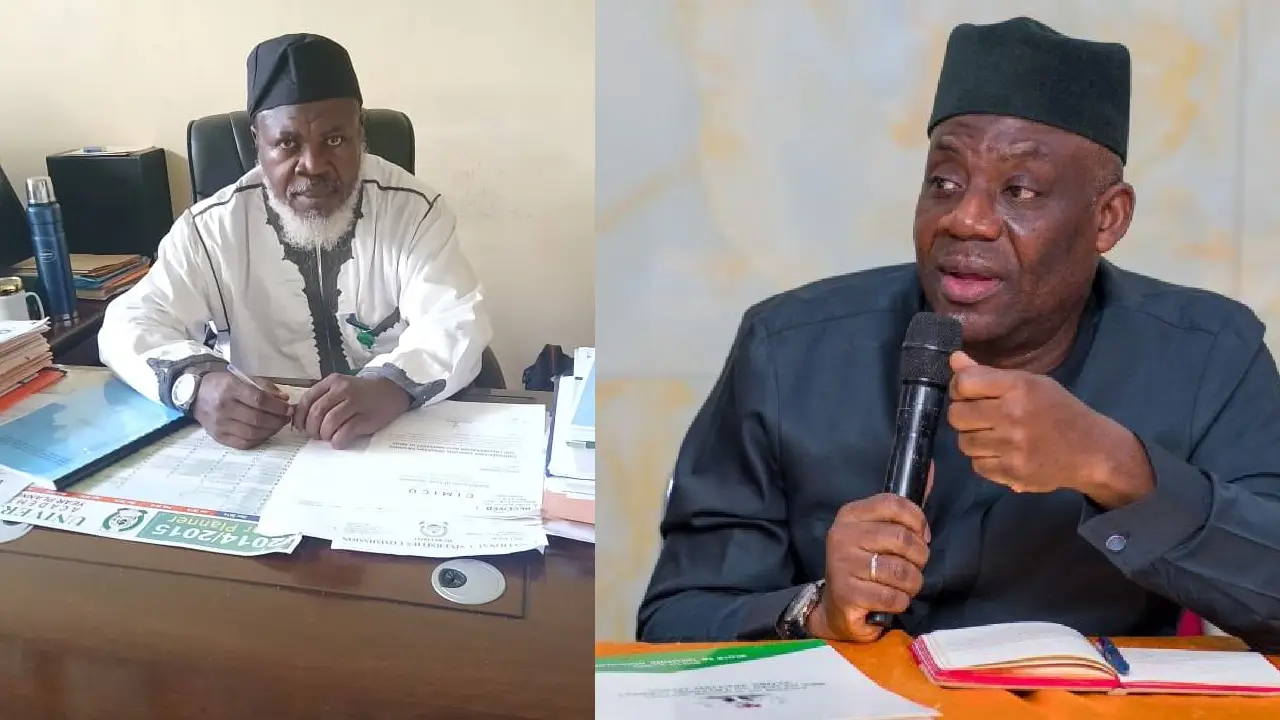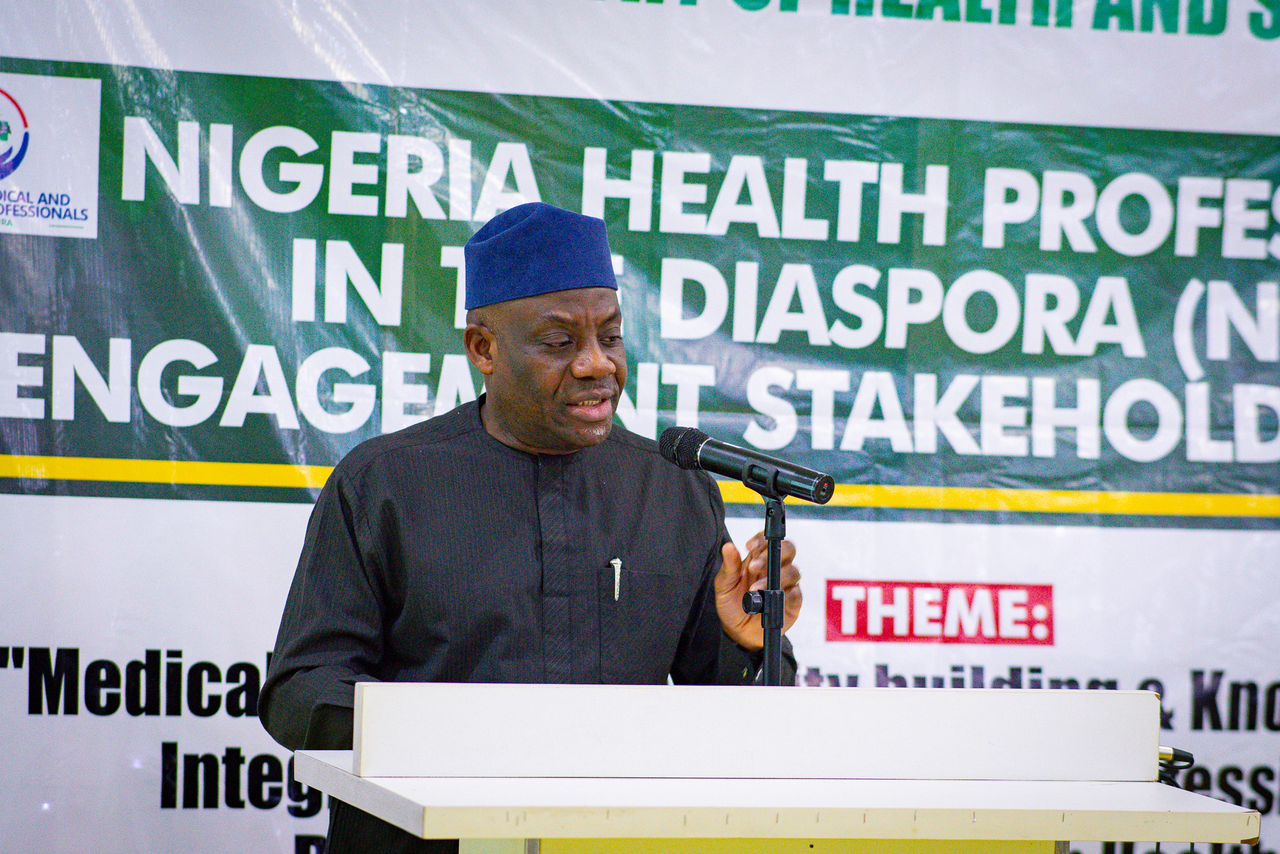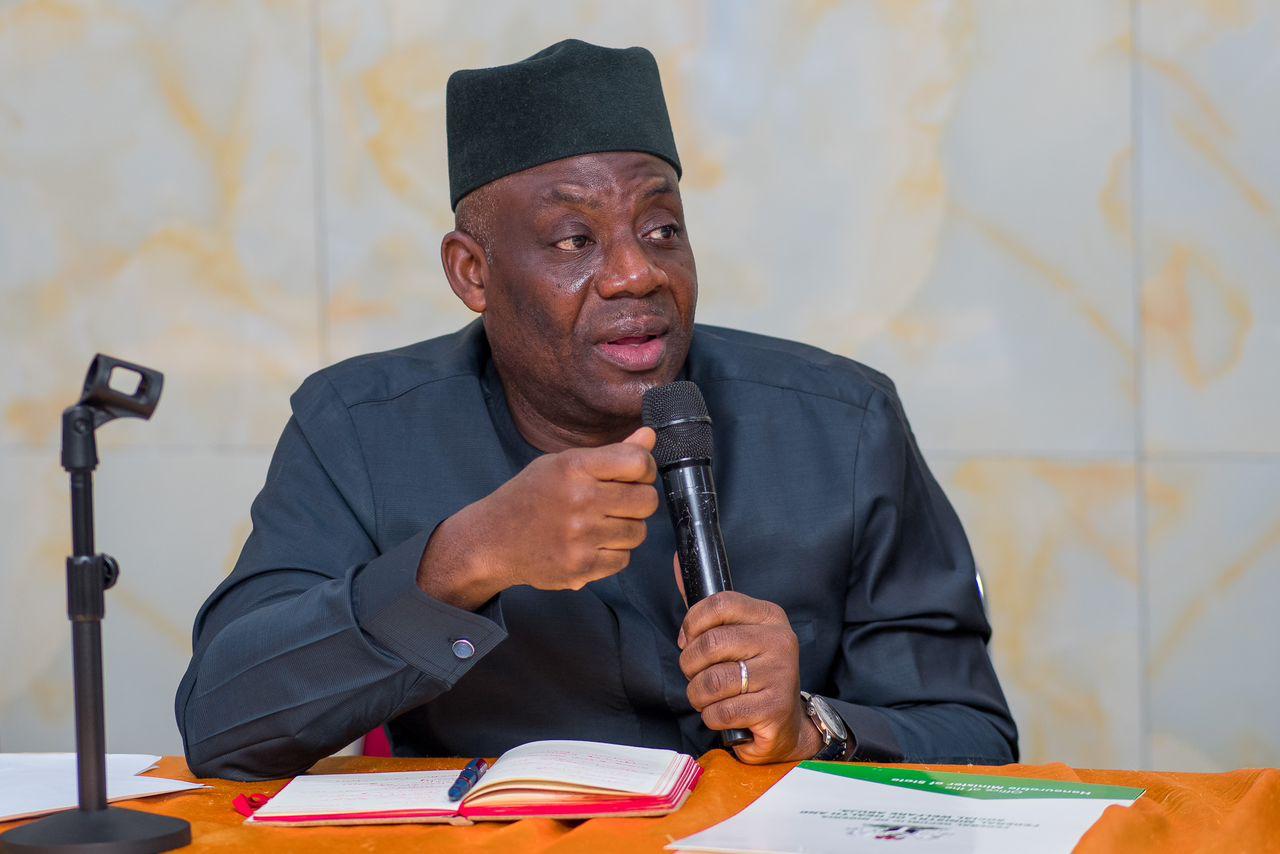Health
Yaoundé Malaria Declaration: Tunji Alausa Joins Other African Health Ministers To Commit To End Malaria Deaths
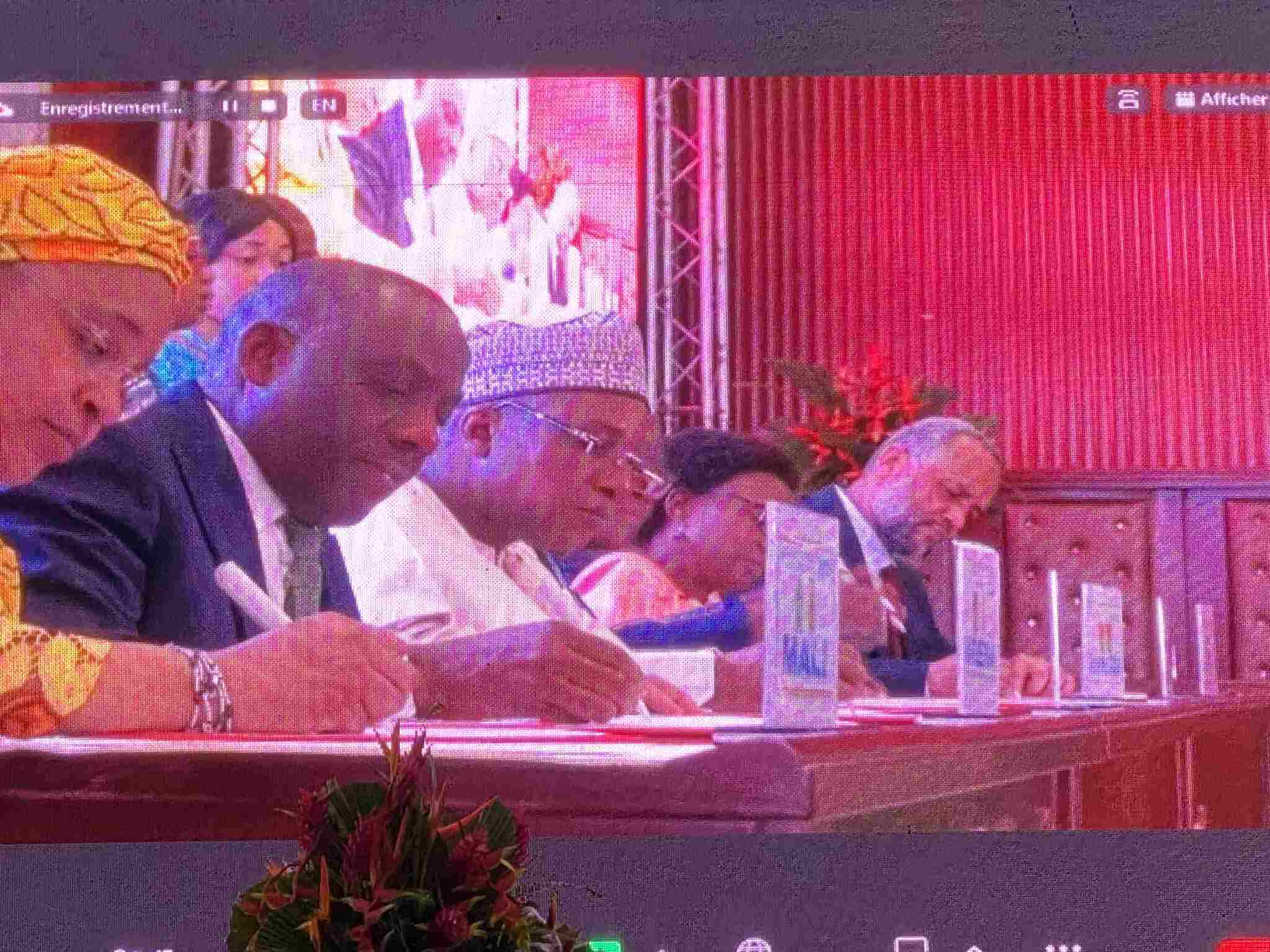
-
Malaria deaths are an issue that that has plagued Africa for several years.
-
Twelve countries, including 11 in Africa, are collectively responsible for 73% of global malaria mortality.
-
In 2022, approximately 166 million malaria cases and 423 000 malaria deaths occurred in these 12 countries.
Eko Hot Blog reports that Minister of State for Health and Social Welfare, Dr. Tunji Alausa, has on behalf of Nigeria committed to accelerated action to end malaria deaths.
Alausa, who represented the Coordinating Minister for Health, Prof. Mohammed Ali Pate, signed a declaration committing to provide stronger leadership and increased domestic funding for malaria control programmes; to ensure further investment in data technology; to apply the latest technical guidance in malaria control and elimination; and to enhance malaria control efforts at the national and sub-national levels.
EDITOR’S PICKS
-
Super Tuesday: Five Takeaways From US Primaries As Ex-President Trump Dominates Nikki Haley
-
ALERT: Lagos Diverts Traffic At Lagos Island-Iyana Oworo-Bound Carriageway
-
Mukhtaar Tijani Leads LWC Officials On Courtesy Visit To Lagos HoS
He joined other health ministers from African countries with the highest burden of malaria in Yaoundé, Cameroon, for the signing of the declaration on Wednesday.
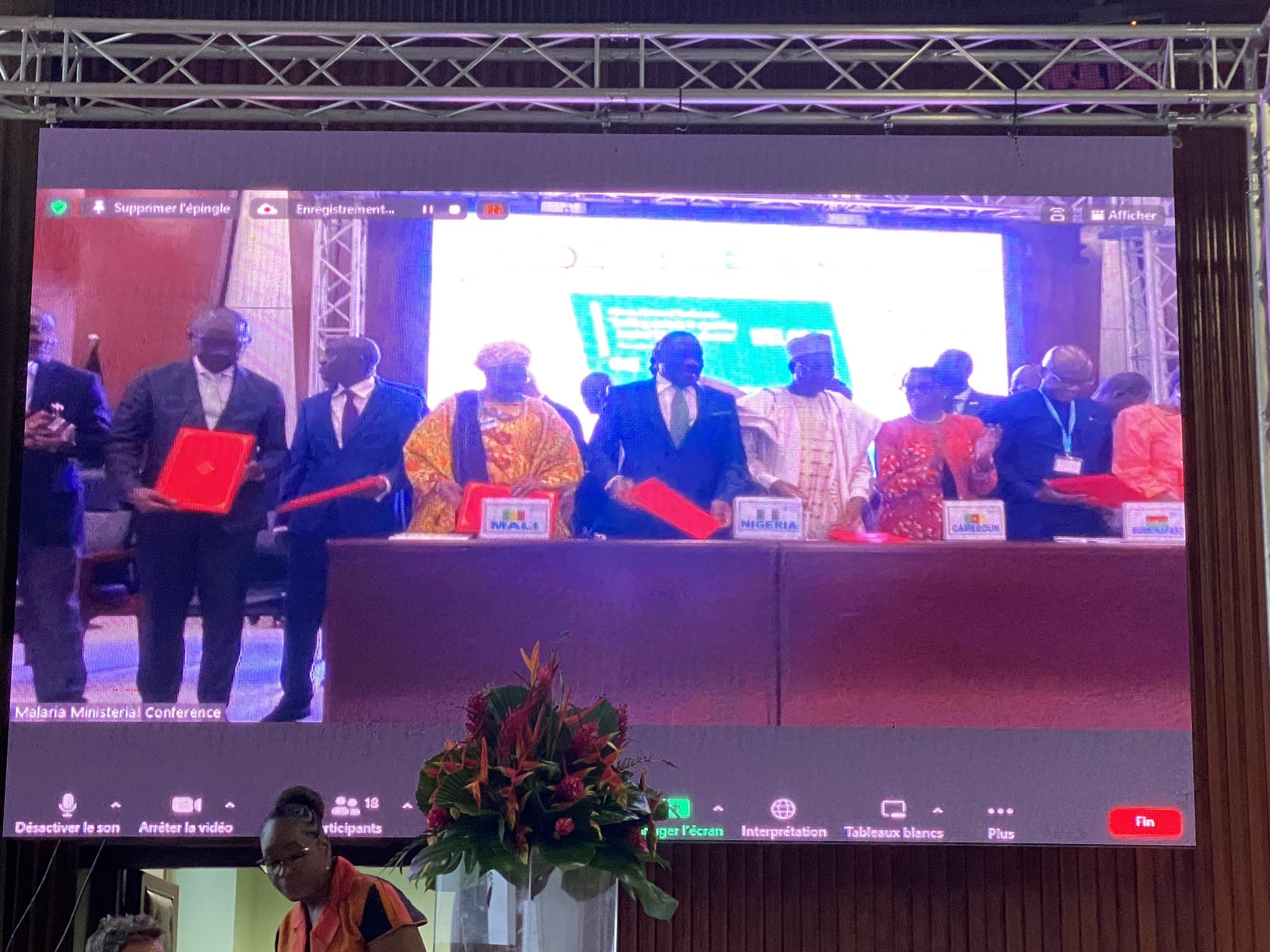
Minister of State for Health and Social Welfare, Dr. Tunji Alausa, and other health ministers from African countries at the Ministerial Conference for countries with High Burden to High Impact (HBHI) in Yaoundé, Cameroun
The Yaoundé conference, co-hosted by the World Health Organization (WHO) and the Government of Cameroon, gathered Ministers of Health, global malaria partners, funding agencies, scientists, civil society organizations and other principal malaria stakeholders.
As part of the Yaoundé malaria declaration, the health ministers pledged to sustainably and equitably address the threat of malaria in the African region, which accounts for 95% of malaria deaths globally.
The ministers further pledged to increase health sector investments to bolster infrastructure, personnel and programme implementation; to enhance multi-sectoral collaboration; and to build partnerships for funding, research and innovation.
In signing the Yaoundé malaria declaration, they expressed their “unwavering commitment to the accelerated reduction of malaria mortality” and “to hold each other and our countries accountable for the commitments outlined in this declaration.”
The African region is home to 11 countries that carry approximately 70% of the global burden of malaria: Burkina Faso, Cameroon, Democratic Republic of the Congo, Ghana, Mali, Mozambique, Niger, Nigeria, Sudan, Uganda and Tanzania.
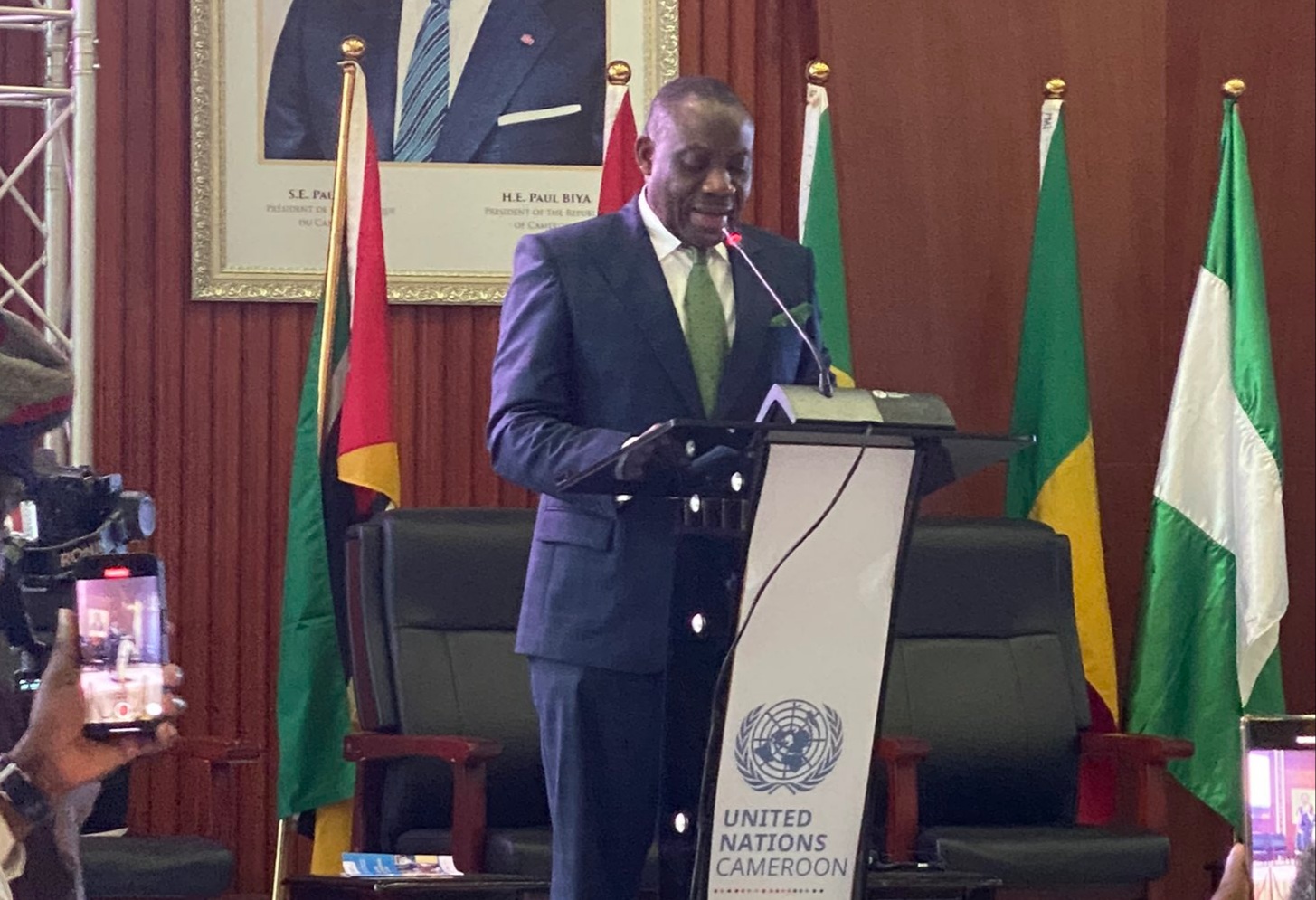
Minister of State for Health and Social Welfare, Dr. Tunji Alausa speaking at the Ministerial Conference for countries with High Burden to High Impact (HBHI) in Yaoundé, Cameroun
Speaking at the event, Dr. Alausa lamented the low coverage of major malaria control interventions. He noted that the low coverage is due to the significant gaps in resources required for health and malaria.
He, however, acknowledged the “moderate progress” achieved in the reduction of malaria prevalence and deaths between 2015 and 2021.
The minister revealed that President Bola Tinubu administration is poised to increase domestic funding in the government’s malaria elimination strategy by significantly increasing budgetary allocation in the upcoming 2025 budget.
According to the WHO, progress against malaria has stalled in these high-burden African countries since 2017 due to factors including humanitarian crises, low access to and insufficient quality of health services, climate change, gender-related barriers, biological threats such as insecticide and drug resistance and global economic crises.
“Fragile health systems and critical gaps in data and surveillance have compounded the challenge,” the global health body said.
“Funding for malaria control globally is also inadequate. In 2022, US$ 4.1 billion – just over half of the needed budget – was available for malaria response.
Globally the number of cases in 2022 was significantly higher than before the COVID-19 pandemic, rising to 249 million from 233 million in 2019.
“In the same period, the African region saw an increase in cases from 218 million to 233 million. The region continues to shoulder the heaviest malaria burden, representing 94% of global malaria cases and 95% of global deaths, an estimated 580 000 deaths in 2022.”
FURTHER READING
-
‘Shameless Bloody Serpent’ – Akeredolu’s Wife Lambasts Late Husband’s Niece Over Aiyedatiwa
-
Dangote Renames Refinery Road After Herbert Wigwe
-
Tokunbo Wahab: Lagos Gives 4-Day Relocation Notice To Squatters On Coastal Road
Dr Tedros Adhanom Ghebreyesus, WHO Director-General, therefore called for robust political leadership, country ownership and the commitment of a broad coalition of partners, to change this story for families and communities across Africa.
Click here to watch video of the week
Advertise or Publish a Story on EkoHot Blog:
Kindly contact us at [email protected]. Breaking stories should be sent to the above email and substantiated with pictorial evidence.
Citizen journalists will receive a token as data incentive.
Call or Whatsapp: 0803 561 7233, 0703 414 5611


